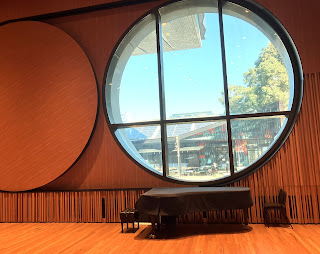Our latest book will finally be published in the coming months, A New Philosophy of Music Education for the Era of AI.
As artificial intelligence (AI) more deeply impacts many aspects of education and the arts, we are hopeful that this book will become a helpful resource for teachers of all kinds.
This original monograph is the outcome of a
long-term collaboration with Professor Jiaxing Xie, an ethnomusicologist and
music teacher educator who worked for years in Beijing as Director of the Chinese Music
Research Institute of China Conservatory, and recently published an 18-volume
encyclopedia on the history of Chinese musical thought.
Here is
a summary:
This book
outlines a philosophy of music education that is responsive to the age of
artificial intelligence. Against the background of AI's challenges to human
modes of production, the authors demonstrate how music education can become a
tool for self-discovery in this transformative era. Taking the approach of a
dialogue between Chinese and Western perspectives, the book addresses the
relationships between the social functions of music education and individual
development in different historical periods, and envisions the potential role
of music education in a new environment shaped by AI. Integrating insights from
recent research, it establishes a forward-thinking philosophy of music
education that is oriented towards self-discovery and grounded in science.
Bringing together philosophical perspectives from Chinese and Western scholars,
this book shows how integrating these perspectives can clarify the values that
shape music education practices, and enable scholars and educators to better
address contemporary issues in the teaching of music.
Prof. Pamela Burnard (Cambridge University) also wrote a beautiful Foreword for this book. Detailed information is available on the Routledge website.




.jpg)

.jpg)







_(3470673354).jpg)






















.JPEG)

_(cropped).jpg)



.jpg)


 https://orcid.org/0009-0002-1446-3893
https://orcid.org/0009-0002-1446-3893






















